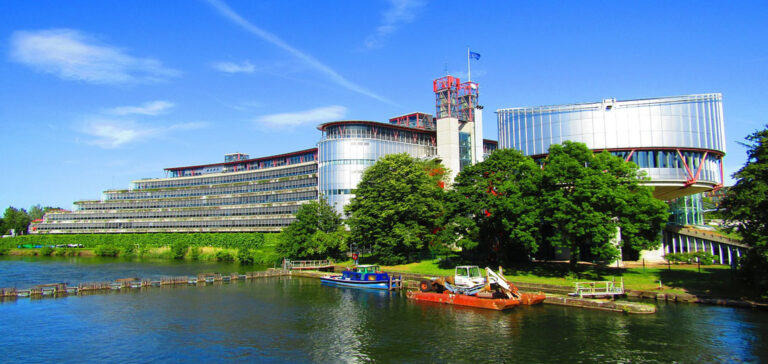The ECHR defends the environment in a historic hearing. It examined the issue of global warming, following a complaint from six young Portuguese men. These young people, aged between 11 and 24, have filed a complaint against 32 states, accusing them of inaction in the face of the consequences of climate change, particularly in the wake of the devastating forest fires of 2017 that killed more than 100 people in Portugal. André Oliveira, aged 15, one of the plaintiffs, expressed the hope that the Court would understand the urgency of the situation and rule in their favor.
A historic audience
It’s a first for the ECHR (European Court of Human Rights), whose jurisprudence on global warming is still virgin, to deal with a complaint involving so many states, including the 27 members of the European Union, Norway, Switzerland, Turkey, the UK and Russia. The hearing was closely attended, with over 80 lawyers and jurists representing the 32 offending states. Only Ukraine, against which the applicants have abandoned their claims, and Russia, which has not been a member of the ECHR since 2022, were not represented.
The debates focused mainly on the admissibility of the case, strongly contested by the defendant States. They argued that the applicants had not exhausted the remedies available before the national courts, a condition generally required for referral to the ECHR. In addition, they questioned the claimants’ status as victims of the policies of states of which they were not nationals.
The representative of the British government, Sudhanshu Swaroop, spoke on behalf of the offending states, stating that they recognized the seriousness of the fight against climate change, but that the claimants, all Portuguese residing in Portugal, did not fall within the jurisdiction of the other states. He argued that these states did not have the capacity to protect them in the face of global warming.
Plaintiffs’ arguments
Ricardo Matos, representing the Portuguese government, praised the young people’s commitment to the cause, but insisted that they had proved no personal harm. The young people’s arguments focused mainly on the impacts of climate change, without demonstrating that they were direct victims. Lawyers for the young Portuguese called on the court not to ignore their case, stressing that the climate problem was universal and transcended national borders.
Waiting for written conclusions
The President of the ECHR granted the parties a further two weeks to submit written submissions in response to the judges’ questions. A final decision is not expected for several months.
Why should this concern us? The ECHR’s examination of this complaint is of crucial importance from the point of view of business, finance and the energy market. If the Court rules in favor of the young plaintiffs, this could have major repercussions on the responsibility of states in terms of climate change, and could encourage similar actions in other countries. Companies and investors should follow this case closely, as it could influence future regulations relating to the environment and greenhouse gas emissions. What’s more, a decision in favor of the plaintiffs could intensify the pressure on governments to take more serious action to combat climate change, which would have an impact on energy and trade policies worldwide.
To sum up, the European Court of Human Rights’ examination of the Portuguese young people’s complaint against state climate inaction is a matter of great importance for business, finance and the energy market. The final decision could have significant repercussions on environmental and climate policies, as well as on the responsibility of States in this area. The parties involved should keep a close eye on this case and its subsequent developments.






















